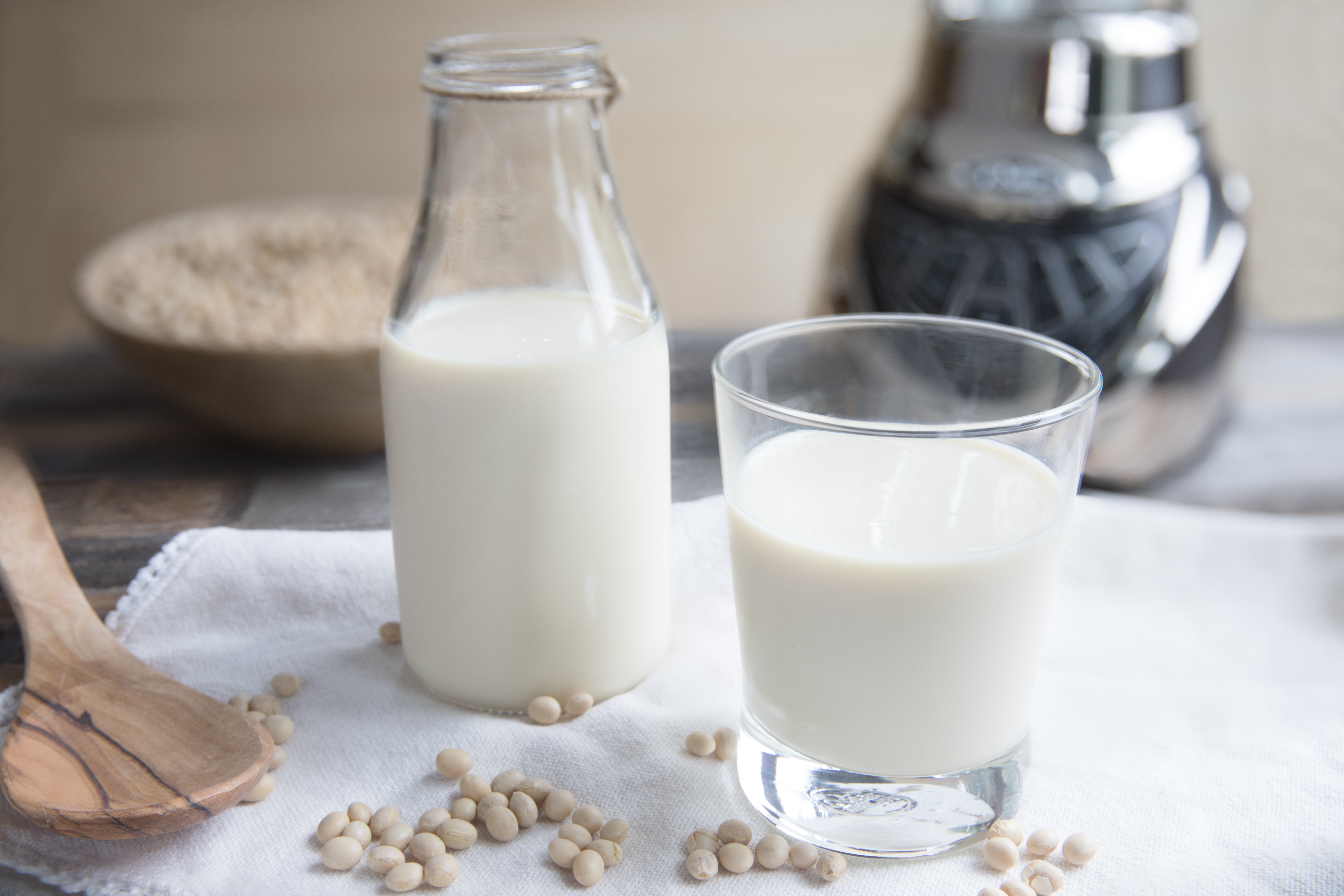Including nutrients for healthy bones in your daily diet can prevent bone-related ailments and save you from medical expenditures. Aging can impact bone strength. An unhealthy diet and genetics may aggravate the condition and cause brittle bones. As per an estimate, over 8.9 million fractures occur every year because of brittle bones. Women’s bone density usually diminishes from the age of 30, making them prone to fractures, premature aging, and accidents.
Including foods abundant in calcium and Vitamin D is one of the best and most effective methods to enhance your bone health, as per the NHS.Have a peek at the 12 nutrients that can enhance your bone health and combat osteoporosis. Keep reading.
Bone Strengthening Foods
Here are the finest nutrients that can help strengthen your bones:
1. Yogurt
Yogurt is an excellent source of probiotics, calcium, potassium, and vitamins D, A, and folate. Scientists have found that consuming yogurt on a daily basis can help prevent fractures. If you have fragile bones, it is recommended to ingest yogurt fortified with calcium.
How Much To Consume
-
Consume about three servings of yogurt per day. You can add it to your smoothies or breakfast bowl, create salad dressings, or add it to fruit salads.
-
Katie, a blogger, encountered a dodgeball injury that led to a fracture in her left hand, resulting to a diagnosis of osteopenia. In her blog, she outlined her commitment to sustaining healthy bones through dietary adjustments, including increased calcium intake and vitamin D from sources like yogurt, almond milk, and exposure to sunlight. She writes, “One of my big fat calcium pills is about 60% of my daily recommended intake. I have actually shifted to a multivitamin that has 500mg, but it has all the iron and other vitamins I need as well.”
2. Milk

Milk is another primary source of calcium, phosphorus, potassium, and vitamins A and D. You can maintain your bones robust by consuming bovine milk. You can also ingest milk that’s fortified with calcium and vitamin D. However, avoid it if you suffer from lactose intolerance.
How Much To Consume
- According to a study, osteoporosis is more common in women than males, with a two-fold higher prevalence. The USA and Europe have estimated hip fracture rates of 0.3 million and 1.7 million individuals, respectively. Milk and dairy products are essential sources of calcium, a crucial component for bone health. However, many individuals are reducing their milk consumption and opting for alternative plant-based beverages. It is important to be cautious when consuming these non-dairy alternatives, particularly in certain age categories. Probiotics and prebiotics found in milk, dairy products, and plant beverages can potentially influence bone turnover. Women aged 20-49 years who consumed less than one portion of milk per week during childhood had a 5.6% reduced bone mineral content (BMC) compared to those who consumed more than one portion. Therefore, dietary recommendations emphasizing milk and dairy products are crucial for osteoporosis prevention.
3. Dark Leafy Greens
Dark leafy greens like spinach, kale, arugula, lettuce, and chard are excellent sources of calcium, antioxidants, and vitamins C and K. Consuming at least three different varieties of dark leafy greens every day can help you get stronger bones and strengthen your immunity.
How Much To Consume
- Consume 3 servings of three different dark leafy greens per day.
4. Cheese
Cheese is produced from milk and is hence a wonderful source of calcium. It is also a wonderful source of vitamin A, vitamin B12, zinc, and phosphorus. By consuming cheese on a regular basis, you will not only add flavor and taste to your food but also prevent your bones from becoming frail. If you are lactose intolerant, you can ingest cheddar cheese that contains negligible or no lactose at all.
How Much To Consume
- Consume about ½ -1 ounce of cheese per day.
5. Fish
Fish like sardines, tuna, catfish, halibut, mackerel, herring, trout, cod and salmon are whole dietary sources of vitamin D. Vitamin D helps promote bone mineralization. And without vitamin D, your bones will not be able to assimilate calcium.
How Much To Consume
- Consume 3 grams of fish per day. It is preferable to have it grilled or broiled for lunch or supper.
6. Eggs

Egg yolks are a wonderful source of fat-soluble vitamins like vitamins D, A, E, and K. Vitamin D is essential for calcium to get absorbed and enhance bone health. Make sure you ingest whole eggs instead of just the yolks.
How Much To Consume
- Consume two whole eggs per day.
7. Fortified Cereals And Juices
Calcium-fortified cereal bars, whole grains such as amaranth and oats, and liquids are an excellent method to build up your body’s calcium levels. You can purchase calcium-fortified citrus juice and have it with your meal. Or consume a fortified cereal bar before or after your exercise or if you have missed your breakfast.
How Much To Consume
- Consume 1-2 servings of fortified beverage or cereal per day.
8. Almond Butter
Almond butter is an excellent source of protein and calcium. This vegan butter is low in cholesterol, tastes flavorful and delicious, and protects your heart. You can add almond butter to smoothies, breakfast platters, and desserts.
How Much To Consume
- Consume 1-2 tablespoons of almond butter per day.
9. Broccoli
Broccoli is a cruciferous vegetable that is known for its many health advantages. It is laden with calcium, vitamin C, potassium, phosphorus, folate, and vitamin K. Consuming broccoli on a daily basis can help you get strong bones and teeth. It also helps you lose weight and fight excessive blood pressure, cancer, and diabetes.
How Much To Consume
- Consume 1 serving of broccoli per day.
10. Seeds

Seeds are the finest sources of calcium. They are also abundant in proteins, dietary fiber, healthful lipids, phosphorus, iron, and potassium. You can consume flaxseeds, sunflower seeds, melon seeds, pumpkin seeds, and sesame seeds by adding them to your breakfast bowl, smoothies, salads, or egg and avocado sandwiches.
How Much To Consume
- Consume 1-2 tablespoons of seeds per day.
Read Also: Surprisingly High-caffeine Foods And Drinks
11. Nuts
Nuts are laden with healthful lipids, omega-3 fatty acids, and protein. Scientists found that consuming mixed almonds every day could help improve your overall health as well as bone health. You can consume nuts whole or pulverize them and add to smoothies, breakfasts, and salads.
How Much To Consume
- Consume a fistful of assorted pecans per day.
12. Beans
Beans are primarily legumes. They are not only excellent sources of protein but are also rich in calcium, phosphorus, potassium, and omega-3 fatty acids. Scientists have verified that consuming legumes can help prevent bone loss. Consume bean sprouts, lentils, kidney beans, garbanzo beans, and cowpeas.
How Much To Consume
-
Have ½ -⅔ cup of legumes per day.
-
These are the finest nutrients to consume to prevent bone loss and build strong bones. But there are certain foods that you should steer clear of so that the bone strengthening nutrients offer you rapid results. Take a peek at the list of foods you must avoid.
Foods To Avoid
Very Low-Calorie Diets
Very Low-Calorie Diets (VLCD) allow the dieters to consume about 500 calories, which means you will lose out on a significant amount of nutrients. If you continue being on a VLCD for several days, your bones and muscles will become feeble. Avoid VLCD when you can lose weight by consuming healthy foods in adequate quantities and exercising.
Salty Foods

Avoid salted foods, such as fries, crisps, fried poultry, prosciutto, and sausage, if you suffer from osteoporosis. Scientists found that excessive quantities of sodium negatively impacted bone health, irrespective of calcium supplementation.
Alcohol
Consuming alcohol in excess can lead to lower bone mineral density. Several studies prove that frequent drinkers are at higher risk of being osteoporotic than moderate drinkers or those who don’t drink at all.
Caffeine
Caffeine is typically found in teas, coffees, and a few energy beverages. Consuming too much caffeine per day can deteriorate the health of your bones and make them prone to fractures.
Soft Drinks
Soft beverages are not healthy for you in any form. And here’s another evidence! Scientists found that colas or carbonated beverages could cause renal injury, which, in turn, could damage your bones.